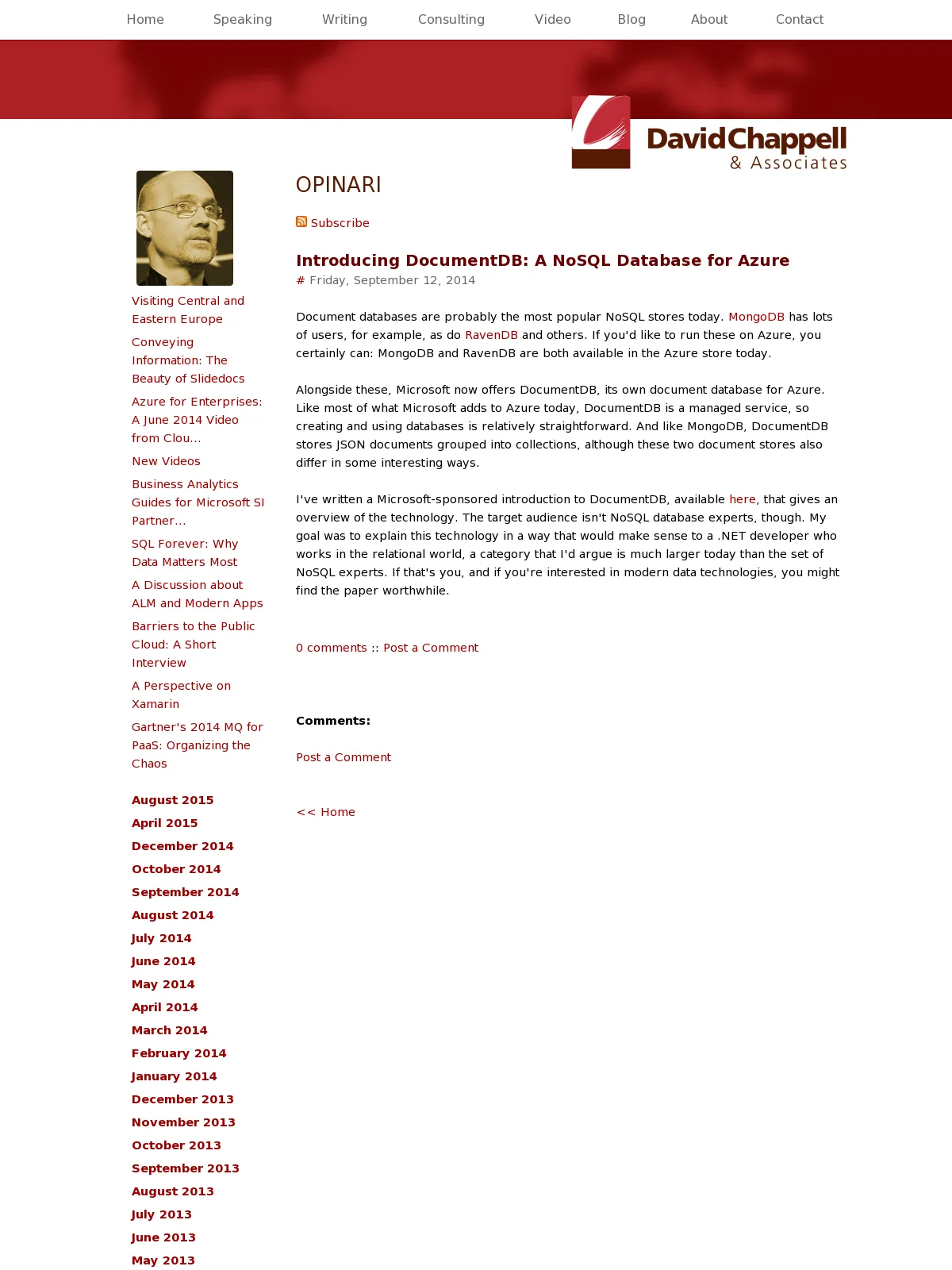Introducing DocumentDB: A NoSQL Database for Azure
Document databases are probably the most popular NoSQL stores today. MongoDB has lots of users, for example, as do RavenDB and others. If you'd like to run these on Azure, you certainly can: MongoDB and RavenDB are both available in the Azure store today.
Alongside these, Microsoft now offers DocumentDB, its own document database for Azure. Like most of what Microsoft adds to Azure today, DocumentDB is a managed service, so creating and using databases is relatively straightforward. And like MongoDB, DocumentDB stores JSON documents grouped into collections, although these two document stores also differ in some interesting ways.
I've written a Microsoft-sponsored introduction to DocumentDB, available here, that gives an overview of the technology. The target audience isn't NoSQL database experts, though. My goal was to explain this technology in a way that would make sense to a .NET developer who works in the relational world, a category that I'd argue is much larger today than the set of NoSQL experts. If that's you, and if you're interested in modern data technologies, you might find the paper worthwhile.
Alongside these, Microsoft now offers DocumentDB, its own document database for Azure. Like most of what Microsoft adds to Azure today, DocumentDB is a managed service, so creating and using databases is relatively straightforward. And like MongoDB, DocumentDB stores JSON documents grouped into collections, although these two document stores also differ in some interesting ways.
I've written a Microsoft-sponsored introduction to DocumentDB, available here, that gives an overview of the technology. The target audience isn't NoSQL database experts, though. My goal was to explain this technology in a way that would make sense to a .NET developer who works in the relational world, a category that I'd argue is much larger today than the set of NoSQL experts. If that's you, and if you're interested in modern data technologies, you might find the paper worthwhile.
